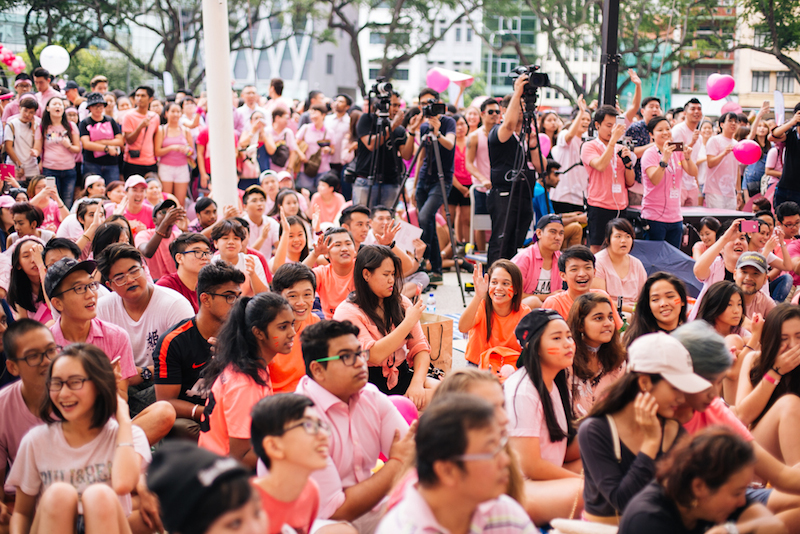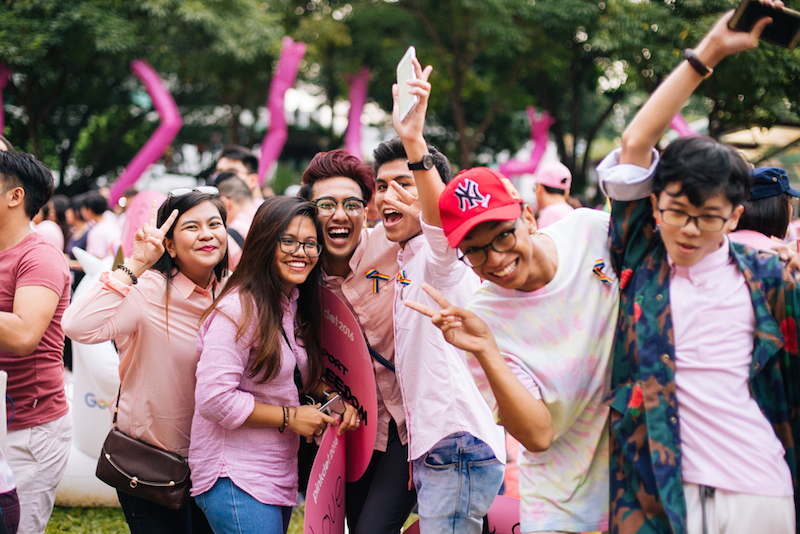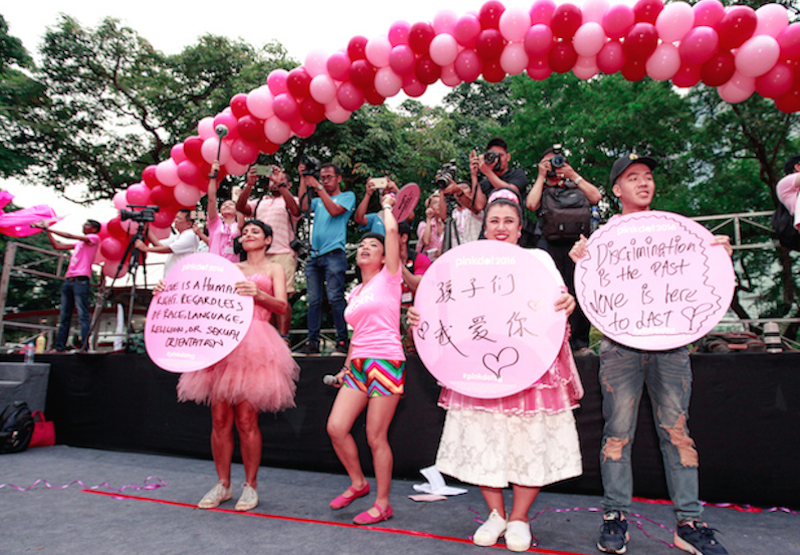On all fronts, Pink Dot has been one of Singapore’s most successful LGBT pride events — in terms of sheer numbers and support. Corporate sponsors? Check. A large crowd of attendees? Check. Social media popularity? Check.
Even in notoriety, the event has attracted well-known detractors in a sea of white – the colour of “personal purity and public morality”. They speak, they fade away, and Pink Dot continues on. But after eight years, what has really progressed in Singapore since the inaugural event in 2008?
Not much, it seems. From the stalemate on repealing Section 377A of the Penal Code to long-standing issues like anti-discrimination laws and media censorship, the status quo still remains. The focus then shifts from political to societal change, where there is hope, with straight allies showing support and more open discussions on social media.
Stories of internal discrimination and political apathy are issues the LGBT community must resolve. However, that’s not to say that Pink Dot is not a positive, affirming event. I felt this year’s event really emphasised the spirit of community – from straight allies to activists, participants took to the stage to share how they lifted their LGBT counterparts by choosing love over hate.
The first palpable step in the LGBT community coming together post-Pink Dot was when the Ministry of Home Affairs denounced foreign funding, only to have Pink Dot organisers substantiate their big-name sponsors as being locally incorporated.

From the outside looking in
The confessions Facebook page GLBT Voices Singapore has long been a ranting ground of stories, some of which reveal ugly cracks, from accusations of intolerant gay student activists to discrimination against certain races on dating app profiles rationalised by personal preference (although, truth be told, this isn’t an issue unique to the LGBT community).
Where were popular social media influencers when LGBT lobbyists fought for greater rights during a United Nations human rights review? And the silence continues on in more pressing topics, such as employee discrimination. In sex education, information about anti-HIV medication PrEP and vaccinations to combat HPV is sorely lacking. Imagine how a report on Action For Aids creating a webseries as talking points for HIV awareness could change social discourse. To be fair, the government has extended a helping hand by allowing HIV patients to claim subsidies under Medishield Life, but societal silence causes stigma to percolate.
Healing internal rifts, boosting societal support and pushing for policy changes are the next steps the community must take, or risk facing a stalemate, where the multiplier effect of Pink Dot is not fully utilised beyond surface metrics such as Instagram and Facebook likes.

Pink Dot moves forward, so should its attendees
Pink Dot has tried moving into a more active stance this year, where participants raised placards containing LGBT-affirming messages, in a move that mirrored placards seen at the population White Paper protest in 2013. Most importantly, the event provides visibility and community. It is a safe haven for LGBTs to gather and stand for something bigger than themselves. However, it is up to those attending to go beyond Pink Dot and turn the annual affair into a daily mantra. Pragma Joe, former marketing director of Singapore-based gay personals portal Trevvy.com, which has been around since 1999, said it best on his Facebook page:
“After today, a good majority of us will return to self exile in our fabulous closets, surrounded by our fabulous friends. A majority of us will still remain quiet, aloof and distant about what really matters – democracy, equality, HIV education and KINDNESS. After this weekend, how many of us will quietly go back to our closets in abject fear, because deep down we know it’s true?”
“I ask, what do we do FROM today and everyday? #pinkdot must be a catalyst for change moving forward… a lifetime of change cannot come from one single day a year. A lifetime of change comes from a daily commitment to effect that change.”

A suggestion would be to pour the same amount of support for Pink Dot into Singapore’s LGBT pride month IndigNation, an event that emerged out of protest over the Nation raves that were shut down in 2005. Already, there is a call from IndigNation organisers to write letters to members of Parliament and address matters such as the lack of anti-discrimination laws and growing censorship of “alternative lifestyles”.
How many of us – straight or LGBT – would write that letter?
How many of us would make donations to non-profit community groups or lobby for societal openness and acceptance on our social media pages? Or would we just come out of the woodwork once a year to wear pink, cheer and then forget about the fight for equality?
Proactivity begins from a daily commitment of inclusion and kindness. Acceptance is difficult to come by in a largely conservative city-state, but if inclusion is what minority communities strive for, then we’ve got a lot of work ahead of us. And until the day comes when an event like Pink Dot is no longer needed, the road to equality is not yet over.
Editor’s note: Views expressed in this article are the author’s own.





Reader Interactions